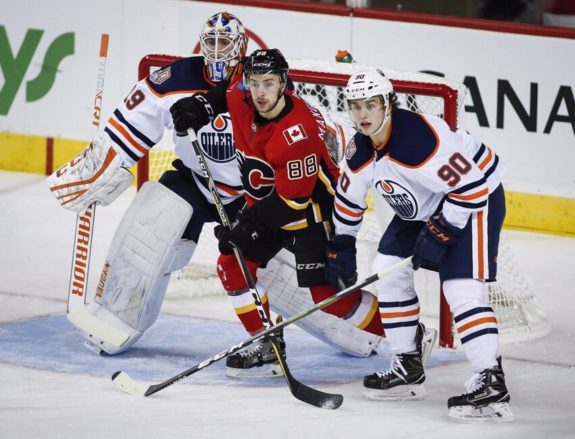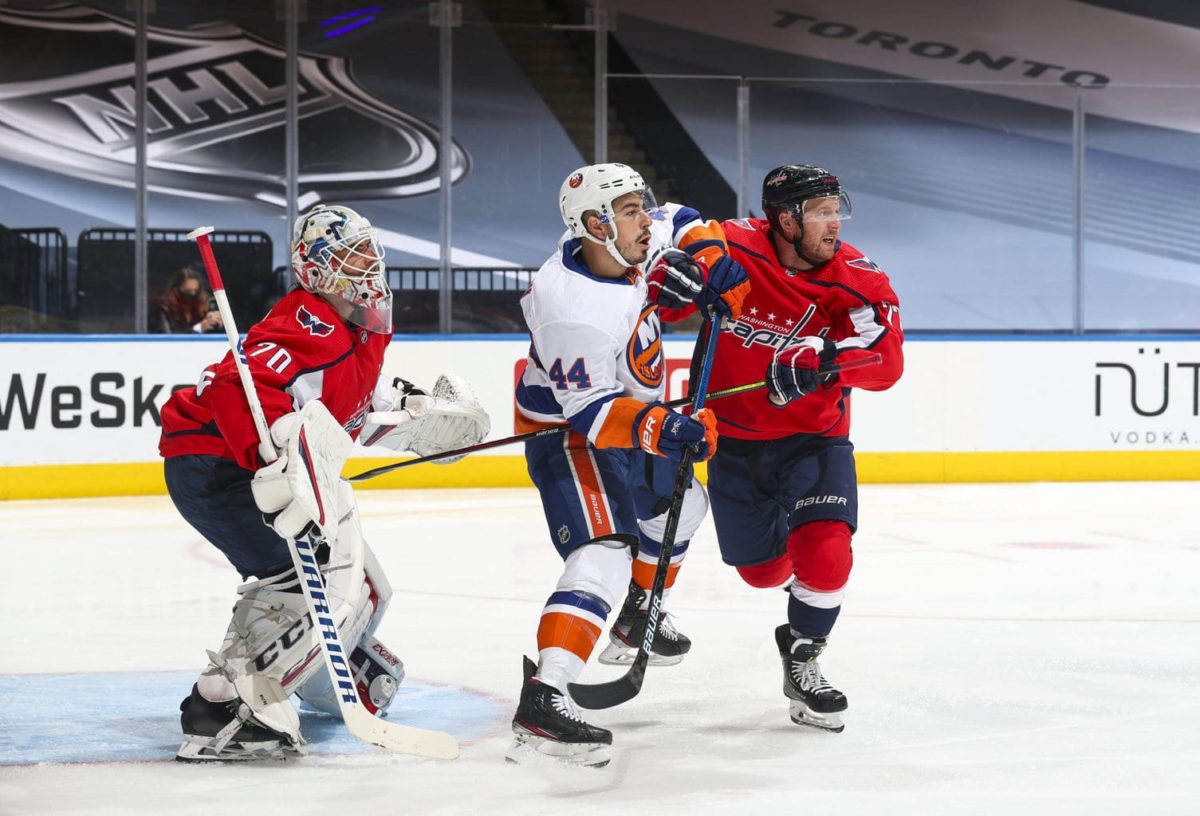A few weeks into the 2020-21 NHL season, it looked like more divisional play would not only create more heated rivalries, but also be an aspect that the NHL could keep moving forward for future seasons. Personally, I thought the eight or nine meetings between teams would allow for more intense games as the season progressed.
As the season continued, it has become clear that the NHL should avoid adding the extra divisional games. The condensed and unusual season has brought out some positives and negatives in the schedule changes and it is interesting to consider what can be taken from this season for the future. With the game continuing to grow, scheduling will be an important aspect for the league to consider to give the fans the best possible product.
Matchups Have Gotten Oversaturated
The main issue this season with the divisional play is the repetitive matchups. Some of the matchups have been intriguing like the battle of Florida (Tampa Bay Lightning vs. Florida Panthers) or the Vegas Golden Knights against the Colorado Avalanche, but unfortunately, the excitement has worn off with some of these games. Prior to the season starting, it looked like the Battle of Alberta (Calgary Flames vs. Edmonton Oilers) would be more heated than ever before with 10 meetings between the two teams. While there has been some similar excitement, with great goals, hits, and fights, the rivalry hasn’t been particularly intriguing compared to any other season and only three of the meetings have been decided by one goal.

Moreover, some matchups that weren’t intriguing to begin with have only gotten worse. Prior to the 2020-21 season, two teams that would be at the bottom of a division would only have to face each other six times but now, the same teams have to continuously face each other. For fans, the past month has produced fewer intriguing games and matchups with many of the top teams continuing to beat up on the bad ones. These repetitive matchups between terrible teams are becoming near-unwatchable.
In addition, there is the constant questioning about how good a team or player truly is this season. Connor McDavid has 81 points in 46 games, but is facing the same teams and some terrible defenses. The players on the ice have a lot to play for, and the same can be said about the teams, but when the NHL returns for future seasons, the repeated, dull matchups won’t be able to sell seats.
The Out-of-Market Intrigue Has Been Lost
In a previous season, there would be a handful of teams that would have disappointing seasons and it would be clear that it wasn’t their year. While fan interest and attendance would decline, one of the major factors to continue to sell the game would be the teams from other divisions or conferences. Many hockey fans are out of the market for a team they support and as the game continues to expand, there is a likelihood that more fans won’t be able to see their team on a nightly basis if they aren’t the local option. This season doesn’t give those fans the option to watch or even attend the one or two games that feature their team like a typical season would.

After watching the repetition of matchups and the loss of excitement, we have seen how out-of-market teams keep the season fresh and bring a new angle to every game. Moreover, the one time a season that Alexander Ovechkin or Connor McDavid is playing in a given city is a must-watch, regardless of the team the star players are facing. Hockey is a team sport, but some players are a thrill to watch and the NHL has to market the great players to the fans. This season has given us a withdrawal from intriguing matchups and the league should be able to return to a normal schedule next season to bring back more exciting matchups.
The Divisional Play Has Given Us Some Positives
With all the negative of the constant matchups, there have been some exciting elements that the NHL must consider moving forward. One thing that stands out is how some of the top teams have been able to adjust their play as the season has progressed in a similar manner to how they would adjust for a playoff series. Many of the top teams in each division would face each other early on in the season, but recognize tendencies and style of play more easily. As a result, they are more prepared for the matchups later in the season. The familiarity with opponents has allowed games between good teams to be more intense and more importantly, should allow the first two rounds of the playoffs to be more exciting than usual with both teams knowing their opponents well at this point.

In addition to the familiarity, the divisional play has allowed for reduced travel. Granted, the Scotia North Division requires distant matchups and there are teams that aren’t close by to all their divisional opponents. However, the ability to only play the same opponents has allowed teams to travel to similar locations and travel less. Moreover, this season has brought along the “mini-series” or back-to-back games against the same opponent, which not only further limits the time a team spends commuting but also has created intriguing rematches.
What Should the NHL Do Moving Forward?
The 2020-21 NHL season reminded us of some of the things that were missed from a normal season — the fans selling out arenas, the full 82-game season, and exciting inter-conference matchups — making this year unlike any other. The normal 82-game schedule should return, continuing to allow for intriguing matchups even late in the season and keeping divisional play important but not oversaturated with repetitive matchups. However, the NHL should consider keeping the “mini-series” or consecutive meetings for years to come, allowing teams to play on reduced travel and thus having greater stamina for the long season. This season can and should be viewed as an experimental one, and the league can learn a lot from the schedule and many other aspects of the game.